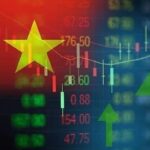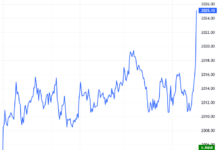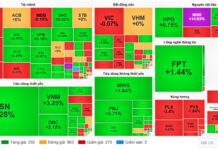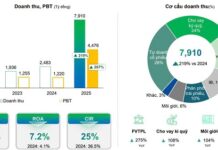
On October 8th, 2025 (Vietnam time), FTSE Russell, a global index provider, announced its decision to upgrade Vietnam from Frontier Market status to Secondary Emerging Market status.
This achievement is the result of relentless efforts by the Vietnamese government and regulatory bodies. According to FTSE, the implementation of the Non Pre-Funding model in November 2024 addressed a critical issue, enabling domestic brokerages to provide capital support for foreign institutional investor buy orders, eliminating the pre-funding requirement for this group. Additionally, Vietnam has established a formal process for handling failed transactions, overcoming two major barriers previously deemed “restrictive” by FTSE Russell.
“The FTSE Russell Index Governance Board (IGB) acknowledges the progress made by Vietnamese market regulators in developing the market and confirms that Vietnam has met all criteria for Secondary Emerging Market classification under the FTSE Country Classification Framework,” stated FTSE Russell.
However, FTSE Russell noted limited accessibility for global brokers trading in Vietnam. While utilizing global brokers is not a mandatory requirement for achieving Secondary Emerging Market status, the organization emphasized that index users must be able to “replicate the index” seamlessly, in line with the second principle of the FTSE Principles Statement.
“FTSE Russell recognizes Vietnam’s ongoing efforts to develop a model allowing foreign institutional investors to work directly with global brokers. This initiative is expected to align Vietnamese market practices with international standards, reduce counterparty risk, and enhance investor confidence,” shared FTSE Russell.
Based on these assessments, the organization announced Vietnam’s upgrade from Frontier Market to Secondary Emerging Market, effective September 21, 2026, subject to an interim review in March 2026 to determine sufficient progress in facilitating global broker access.
FTSE Russell stated that the upgrade will be implemented in phases, with detailed implementation plans to be announced in the March 2026 review.
According to the State Securities Commission of Vietnam (SSC), this event marks a significant milestone in the robust development of the Vietnamese stock market, recognizing the comprehensive reform efforts undertaken by the entire securities industry in recent years, in line with the Party and State’s directives to develop a transparent, modern, and efficient stock market adhering to the highest international standards.
Expected Capital Inflows and Impact
HSBC estimates that following the upgrade, Vietnam could account for approximately 0.6% of the FTSE Asia Index and 0.5% of the FTSE Emerging Markets Index, potentially attracting around $1.5 billion from passive funds. In a more optimistic scenario, passive fund inflows could reach $3 billion, alongside $1.9-$7.4 billion from active funds.
BSC Research forecasts that Vietnam could attract $0.76 to $1.34 billion in net capital from global ETFs and open-ended funds, particularly those tracking the FTSE Emerging Markets All Cap Index. The new capital inflows are expected to focus on stocks meeting criteria for capitalization, liquidity, and importantly, remaining foreign ownership limits.
However, investors should note that foreign capital will not flow in immediately, as the transition process requires time, and the upgrade decision will only take effect in September 2026.
Speaking to the press, Mr. Trinh Thanh Can, CEO of Kafi Securities, stated: “Historically, markets upgraded like Qatar, UAE, Pakistan, and Kuwait saw an average increase of 20-25% from the announcement date to the effective date. Stocks included in the Emerging Market index basket typically outperformed the broader market due to inflows from ETFs and active funds.”
However, after the upgrade takes effect, these markets often experience a 10-12% correction due to short-term profit-taking, before establishing a more sustainable price level.
– 04:27 08/10/2025
Elevating Market Status: A Catalyst for Vietnam’s Stock Market Ascendancy
According to Tran Hoang Son, Director of Stock Market Strategy at VPBank (VPBankS), FTSE Russell’s confirmation of Vietnam’s stock market upgrade to Secondary Emerging status brings significant benefits. These include increased foreign investment inflows, enhanced market liquidity and efficiency, elevated economic reputation and standing in the region, and accelerated economic and corporate growth.
Vietnam’s State Securities Commission: Market Upgrade Marks the Beginning of a New Development Phase
According to the State Securities Commission (SSC), this event marks a significant milestone, showcasing the robust growth of Vietnam’s stock market. It reflects the comprehensive reform efforts undertaken by the entire securities industry in recent years, aligning with the directives of the Party and the State to develop a transparent, modern, and efficient stock market that meets the highest international standards.
Vietnam’s Ascent to Global Financial Hub Status
Aspiring to establish Vietnam as a compelling and sustainable global financial hub not only unlocks opportunities to attract international capital but also serves as a critical test of its institutional framework, infrastructure, and capacity to foster an environment that is truly livable, workable, and investable.




















